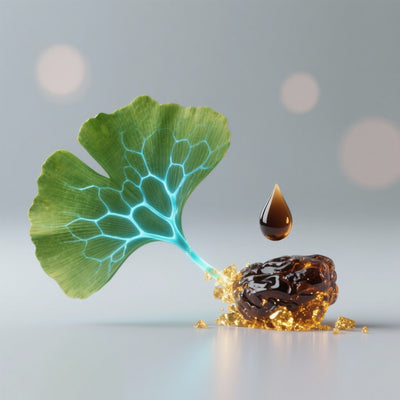12 Tell-Tale Signs That Your Hormones Are Affecting Your Libido
Sexual desire fluctuates, that's a fact. But when silence settles in the bedroom and libido seems to have taken an extended vacation, it's easy to feel confused, frustrated, or even alone. If you're wondering where your sex drive has gone, the answer might not lie in your relationship or a passing bout of fatigue, but rather in the complex and invisible dance of your hormones. These are your body's chemical messengers, governing everything from your mood to your metabolism, and of course, your desire.
Recognizing that your decreased libido isn't "all in your head" but potentially a symptom of a hormonal imbalance is the first step toward regaining your vitality. In this article, we'll explore 12 subtle yet revealing signs that your hormones could be the real culprits. Understanding these signals is essential for taking back control and reconnecting deeply with your body and your desire.
Understanding the Complex Link Between Hormones and Libido
Before delving into the signs, it's crucial to understand who the main players are in this drama. Libido isn't governed by a single hormone, but by a delicate hormonal orchestra where each instrument must play in harmony.
- Testosterone: Often considered the "male" hormone, it is just as vital for female libido. It is the primary driver of sexual desire. Low levels can lead to a significant decrease in libido.
- Estrogen: This key female hormone influences mood, menstrual cycles, and vaginal health. When estrogen levels drop (particularly during perimenopause and menopause), it can cause vaginal dryness, making intercourse uncomfortable and, consequently, decreasing desire.
- Progesterone: It balances estrogen and has a calming effect. Levels that are too low or too high relative to estrogen can disrupt the overall balance and indirectly impact libido.
- Cortisol: The stress hormone. Chronic stress maintains high cortisol levels, which can suppress the production of sex hormones like testosterone. Your body, in "survival" mode, puts reproduction and desire on the back burner.
- Thyroid Hormones: An underactive thyroid (hypothyroidism) slows down the entire metabolism, including energy production and libido.
The 12 Warning Signs: Your Body Is Talking to You
A hormonal imbalance rarely manifests with a single symptom. It's often a constellation of signs that, when connected, paint a clear picture. Here are 12 indicators to monitor closely.
1. Persistent fatigue that does not improve with rest
This isn't the normal tiredness after a long day. It's a deep exhaustion that weighs you down first thing in the morning. If you feel drained even after a good night's sleep, it could signal a cortisol problem (adrenal fatigue) or hypothyroidism, two conditions that deplete energy and libido.
2. Mood swings, irritability, or anxiety
Are you feeling on edge, irritable at the slightest thing, or overwhelmed by anxiety? Fluctuations in estrogen and progesterone, especially before menstruation or during perimenopause, can cause emotional ups and downs. When you're not feeling well mentally, sexual desire is often the first thing to disappear.
3. Sleep disturbances (insomnia, night awakenings)
Difficulty falling asleep, frequent awakenings around 3 a.m., night sweats... Poor sleep quality is a warning sign. Low progesterone can make it difficult to fall asleep, while high cortisol can cause nighttime awakenings. A lack of restorative sleep has a direct and devastating impact on energy and libido.
4. Unexplained weight gain, especially around the abdomen
Despite a healthy diet and exercise, the pounds keep piling on, especially around the waist? This is a classic sign of excess cortisol or insulin resistance, two conditions that disrupt the balance of sex hormones and promote inflammation, another passion killer.
5. Vaginal dryness
This is one of the most direct signs of a drop in estrogen. Natural lubrication decreases, which can make intercourse uncomfortable or even painful. This association between sex and pain can quickly extinguish any spark of desire. It's a taboo subject, but incredibly common and treatable.
"More than 50% of menopausal women report symptoms of vaginal dryness, but only a fraction of them seek treatment. This is an essential conversation to have with your doctor."
6. Irregular or painful menstrual cycles
Periods that disappear for months, very short cycles, heavy bleeding, or severe premenstrual syndrome (PMS) are clear indicators of a hormonal imbalance, often between estrogen and progesterone. A chaotic cycle reflects chaotic hormone production.
7. Hair loss or thinning hair
Your hair is a barometer of your hormonal health. Excessive hair loss can be linked to thyroid problems, excess androgens (as in PCOS), or low iron levels, often associated with heavy periods. To learn more, check out our informative blog .
8. Brain fog and difficulty concentrating
Do you struggle to find your words, or forget why you even entered a room? This "brain fog" is often linked to estrogen fluctuations, an underactive thyroid, or excess cortisol. It's hard to feel sexy when your brain feels like it's running on low power.
9. A constant feeling of "overwork"
If you feel perpetually stressed, even in the absence of major stressors, your nervous system may be in overdrive. This is where cortisol comes in. As mentioned, when the body is in "fight or flight" mode, libido is put on hold. Stress management is therefore non-negotiable. Explore some tips in our lifestyle section.
10. A decrease in muscle mass and strength
Do you feel like you're losing muscle tone despite your efforts at the gym? Low testosterone can make it difficult to maintain or build muscle mass, in both men and women. Less muscle often means less energy and a lower self-image, which can negatively impact libido.
11. Dry skin or the appearance of adult acne
Your skin reflects your hormones. Excessively dry skin can indicate a thyroid problem or a drop in estrogen. Conversely, cystic acne, especially on the jawline, is often a sign of excess androgens. These physical manifestations can affect self-confidence and, consequently, libido.
12. Less pleasure or difficulty reaching orgasm
Libido isn't just about desire; it's also about pleasure. A hormonal imbalance, particularly low testosterone or estrogen levels, can decrease the sensitivity of erogenous zones and make orgasm more difficult to achieve. This can create a vicious cycle where a lack of satisfaction further diminishes desire.
What to Do? Take Back Control of Your Well-being
If you recognize yourself in several of these signs, don't despair. It's an invitation to listen to your body and take action. Here are the first steps to regaining your balance.
Consult a healthcare professional
This is the most important step. Talk to your doctor, gynecologist, or endocrinologist. Blood tests can measure your hormone levels (thyroid, sex hormones, cortisol) and pinpoint the source of the problem. Don't be ashamed to discuss libido; it's an indicator of overall health.
Adopt a balanced and anti-inflammatory diet
Your hormones are made from the nutrients you consume. Focus on whole foods: green vegetables, healthy fats (avocado, olive oil, nuts), quality protein, and complex carbohydrates. Limit sugar, processed foods, and alcohol, which are pro-inflammatory and disrupt hormonal balance. Find inspiration for our recipe ideas on the blog .
Prioritize sleep and stress management
Aim for 7 to 9 hours of sleep per night in a dark, cool room. Sleep is when your body regenerates and regulates its hormones. Incorporate stress management practices into your daily routine: meditation, yoga, deep breathing, walking in nature. Even 10 minutes a day can make a huge difference to your cortisol levels.
Conclusion: Your libido is a barometer of your health
A decreased libido isn't inevitable or a personal failure. It's often the most telling symptom that something is happening internally. By learning to recognize these 12 signs, you empower yourself to move from confusion to action. Listening to your body is the greatest act of self-love you can offer yourself.
Your journey to better hormonal balance begins today. Be patient, be kind to yourself, and don't hesitate to seek support. Do you recognize yourself in any of these signs? Share your experience in the comments if you wish.











